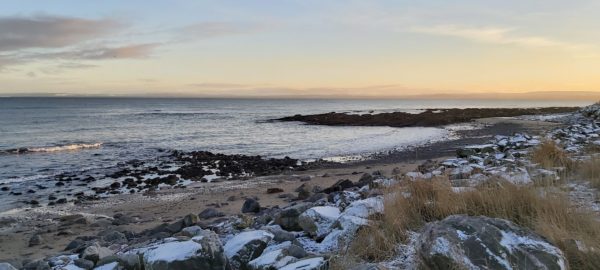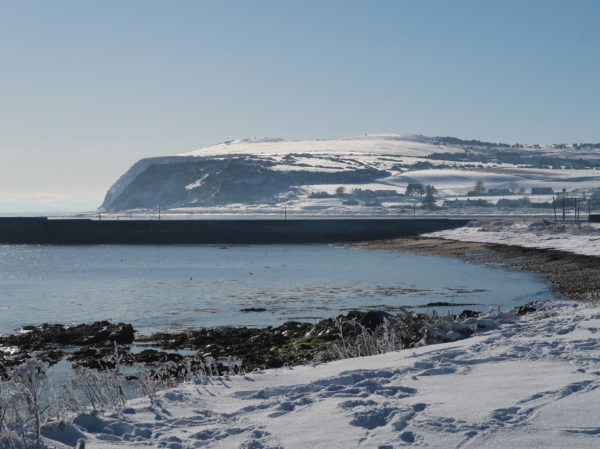
Continuing with the influence Gaelic has had on the way English was and still is spoken on the Seaboard, in sentence structure and turns of phrase, this time I wanted to look at one wee Gaelic word, air (pronounced “err”), meaning “on”, which crops up everywhere.
In English this is mainly used to say where or when something is – on the table, on a winter’s day, etc, but although used that way too, in Gaelic it covers a much wider range. One area is parts of the body: rather than saying someone has a face, head, hair etc, these things are “on you”. This shows up directly translated into English, especially if emphatic, in expressions like:
Look at the face that’s on him! That’s awful long legs on her! What a nose is on him! Och, it’s no a bad head that’s on you! (Meaning I’d shown some sense!)
This might be transferred to related items:
Have you seen the clothes on her? She has an awful boos on her! (pout, sulky expression)
Air is also used in Gaelic for external influences on us, things that are landed on us by fate, as it were. Often unpleasant or at least unasked for, like strong emotions, or illnesses, that group also includes our names, as we didn’t choose them ourselves. In Gaelic all these things are “on you”. The Gaelic for “What’s your name?” is Dè an t-ainm a th’ ort? What’s the name that’s on you? (= landed on you by your parents). Tha gaol agam ort, I love you = I have love on you (whether you want it or not). So we also see this use of air = on:
That’s an awful cough that was on her. What’s the hurry on you? That’ll put the worry on him! Oh, the rage that was on him!
A related use is when you shift the blame for something bad to fate, or your wee brother:
He went and broke it on me! The fire went out on me. The train left on me! These are all direct translations from Gaelic uses of air.
There’s one other important use of air in Gaelic, where it means not “on” but “after”, along with verbs. This is used where English uses the perfect tense, i.e. you “have done” something. In Gaelic you are “after doing” it.
Will you have a cup of tea? No, I’m just after having my dinner.
I was just after coming in the door when the post came.
I’m just after feeding the hens.
He was no long after coming out of the Navy when he got a job in Tain.
So if you find yourself, or hear someone else, using expressions with “on” and “after” that don’t sound quite English, you know where they come from now. And I’d be delighted if you made a note of any other examples for me.
More next month!
